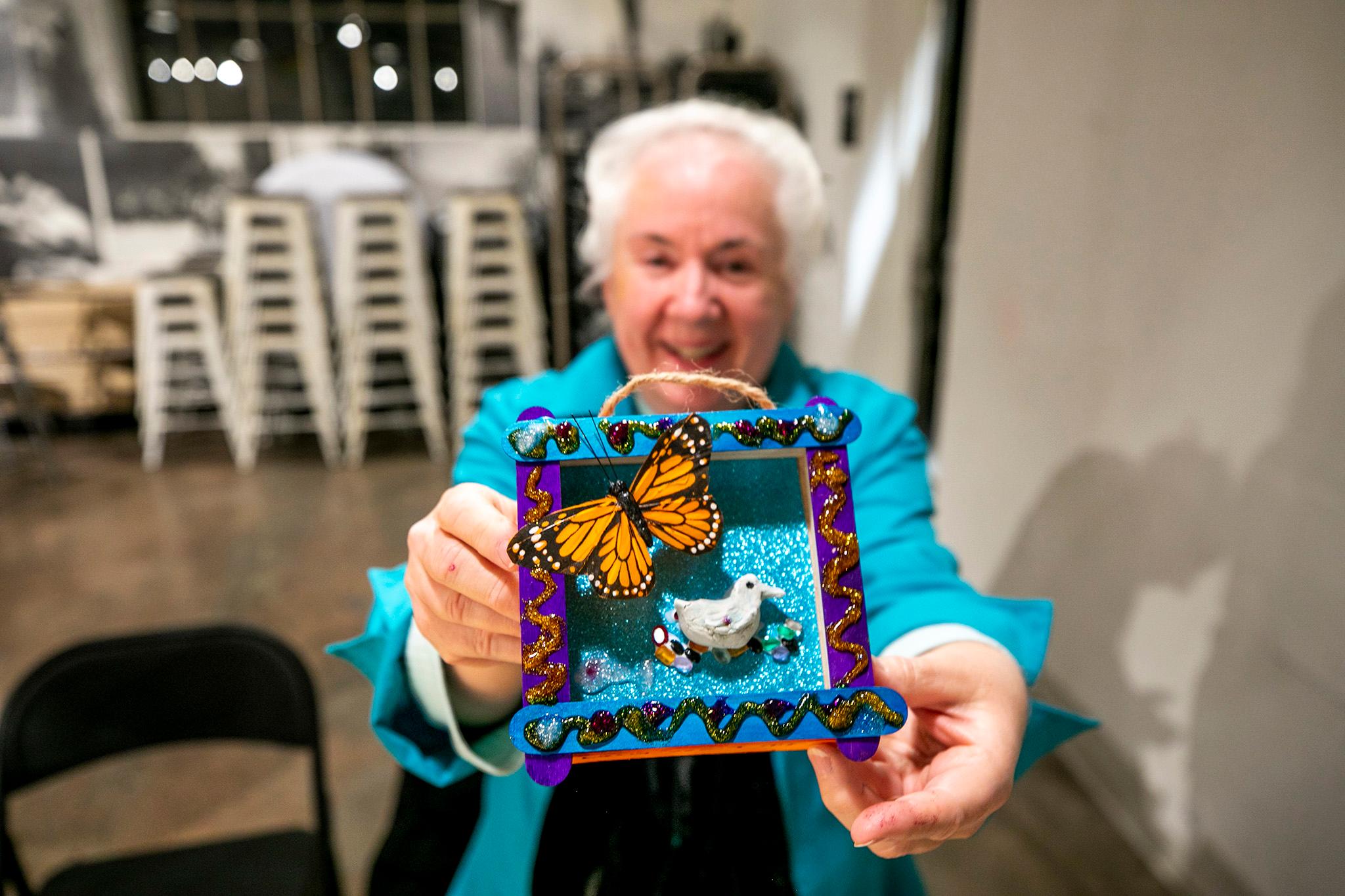Día de los Muertos officially starts Nov. 1 but the celebration, preservation and reclamation of the holiday begins Nov. 3 in Westwood.
Starting Friday, Hecho en Westwood, Re:Vision, In Lak'ech Denver Arts and other Westwood partners will close down Morrison Road and throw a three-day street festival to immerse Denverites in the holiday's cultural history and its transcendence to modern times.
"What's been really important to us is honoring the dead," said Damaris Ronkanen, the owner of Cultura Chocolate and founder of Hecho en Westwood. "The concept of death is just the next stage in someone's existence ... It's part of your journey. For our celebration this year, we really wanted to honor the history and evolution of Muertos. So, the three day festival has three different themes."
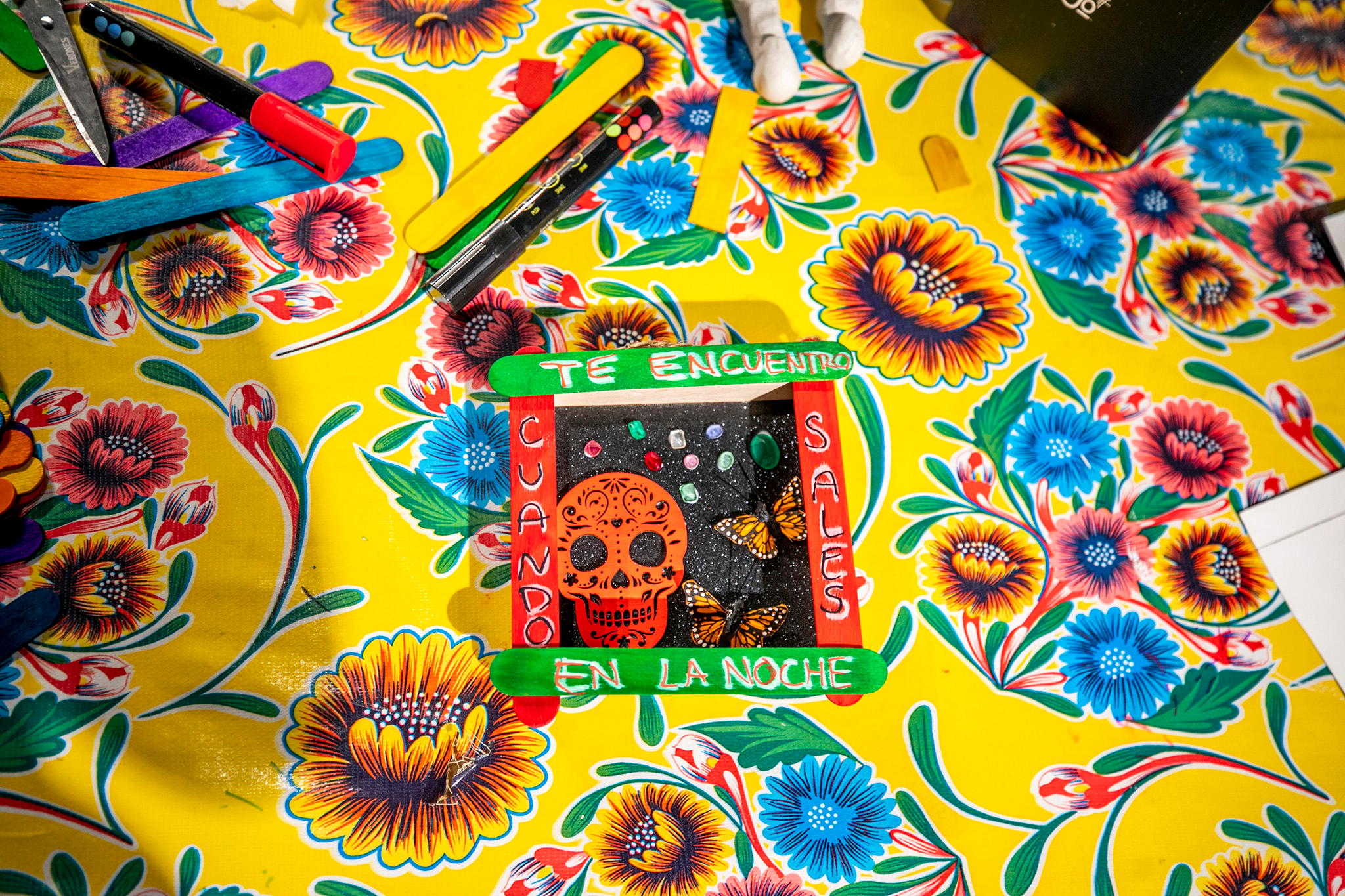
Day One: Friday, Nov. 3
Day one, on Friday, is the Mikailwitl celebration, which Ronkanen said represents the way Muertos was celebrated before colonization. From 6 p.m. to 10 p.m., the festivities will focus on indigenous traditions.
The night will open with a Danza Mexika ceremony and the highlight performance will be from Grupo TRIBU, a renowned quintet from Mexico City that focuses on creating music resembling sounds from the pre-colonization era of Mexico.
"We really think it's important that this type of music and these traditions aren't lost and we really want to create a platform for them to be able to showcase that here in Denver," Ronkanen said.
Day Two: Saturday, Nov. 4
Saturday is all about the Chicano influence on the holiday with Muertos en el Barrio. From noon to 7 p.m., the block will be adorned with low riders, live paintings from Xencs L. Wing, a photo booth with Anthony Maes and music by Las Mañanas and DJ Miggy.
An outdoor photo exhibition by Armando Geneyro will also be on display, highlighting his decade-long collection of Día de los Muertos photos featuring local Denverites.
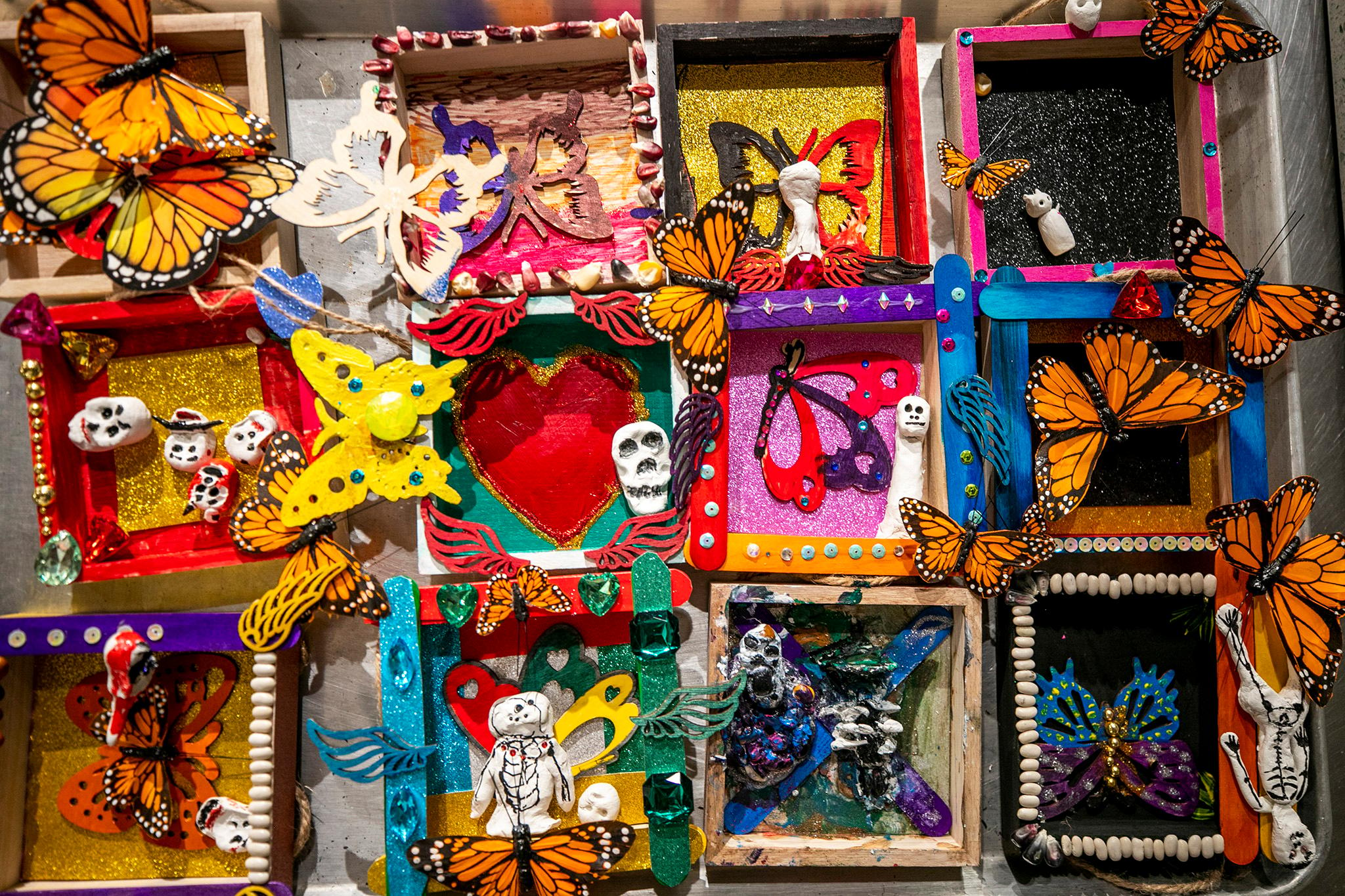
"The theme for Saturday is just really honoring the Chicano movement's influence Día de los Muertos," Ronkanen said. "We talk a lot of about just how commercialized Mexican culture and traditions have become...and with the Chicano movement, it's a lot about resistance and really owning your identity and owning your traditions. That's really important to showcase."
Students with In Lak'ech will also present their "Viva la Vida" performance. The group of 5th through 12th grade students will perform traditional baile folklórico, live mariachi music, and custom Día de los Muertos art installations.
Day Three: Sunday, Nov. 5
Modern interpretations of the holiday will be the focus of the final day of the festival, centering of the Festival de las Catrinas. From 11 a.m. to 5 p.m. Sunday, the festival will offer flower crown making, Catrina face painting, lucha libre, Mariachi music by Las Dahlias and a performance by Retro Norteño. Sangre de Mexico will finish the weekend event with their "mis Dulce Catrinas" presentation.
"The Catrina is kind of the most iconic image that exists for Muertos," Ronkanen said. "Again, we're recognizing that traditions evolve but really just trying to make sure that it's not just about commodifying our traditions."
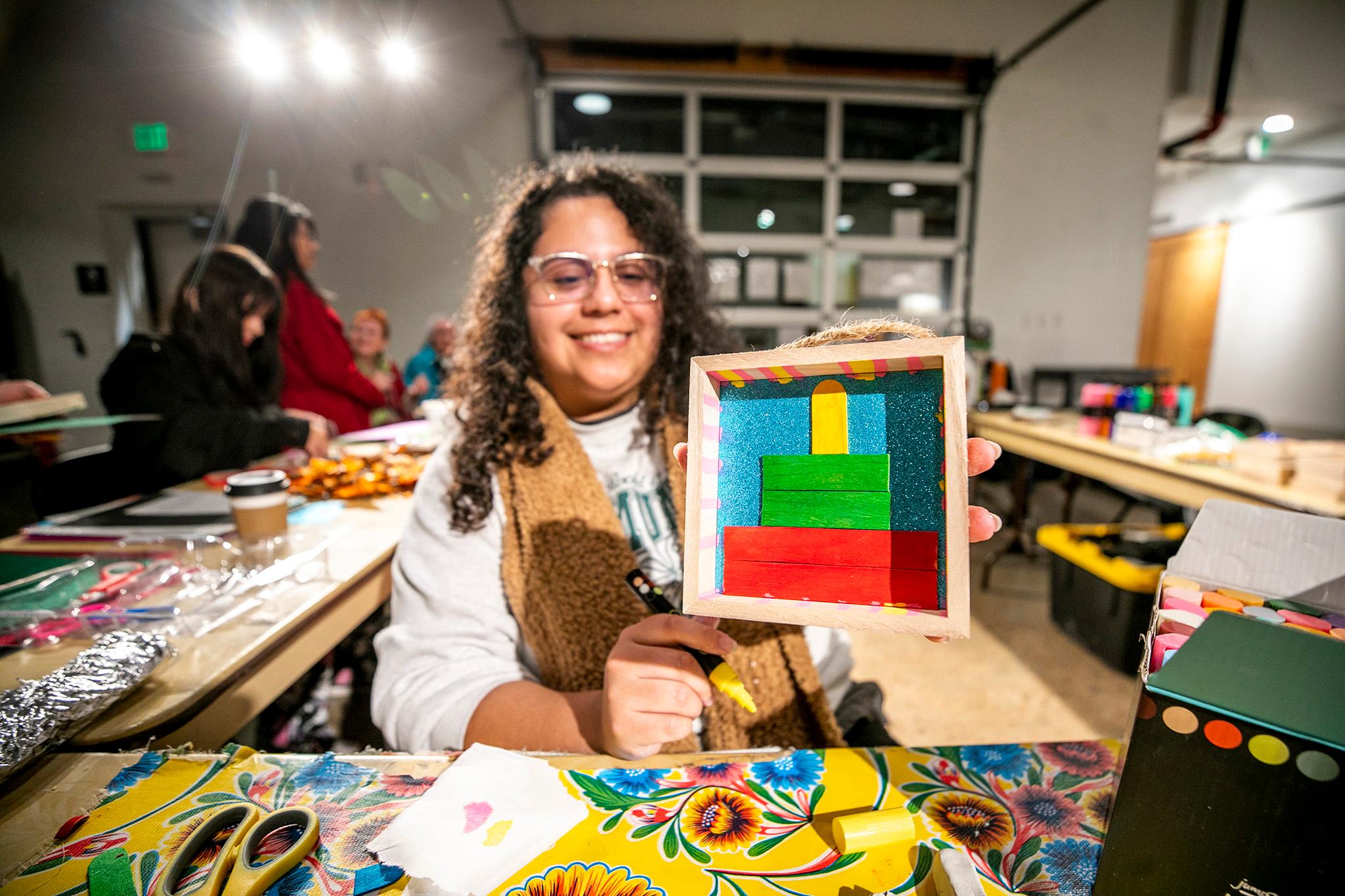
Ronkanen said organizers have been intentional about making the three-day festival's environment inclusive, including all aspects of the holiday, but also being aware of how over-commercialized the holiday can become. It's something community members in Westwood focus on often, especially when it comes to their other events such as their Cinco de Mayo festival or their Frida Kahlo celebration.
"A big part of Hecho's mission is cultural preservation and a lot of that really is reclaiming the indigenous heritage that exists here and honoring those traditions," Ronkanen said. "The evolution of traditions doesn't necessarily have to be negative as long as it's being done in a way that's still kind of honoring the original intent behind those traditions."
To dive into the preservation and reclamation aspect, Ronkanen said this event involved the community more than ever. For the past month, Hecho and Re:Vision have been hosting community ofrenda and nicho workshop classes, where neighbors gathered to create a large Westwood altar, as well as mini personal altars.
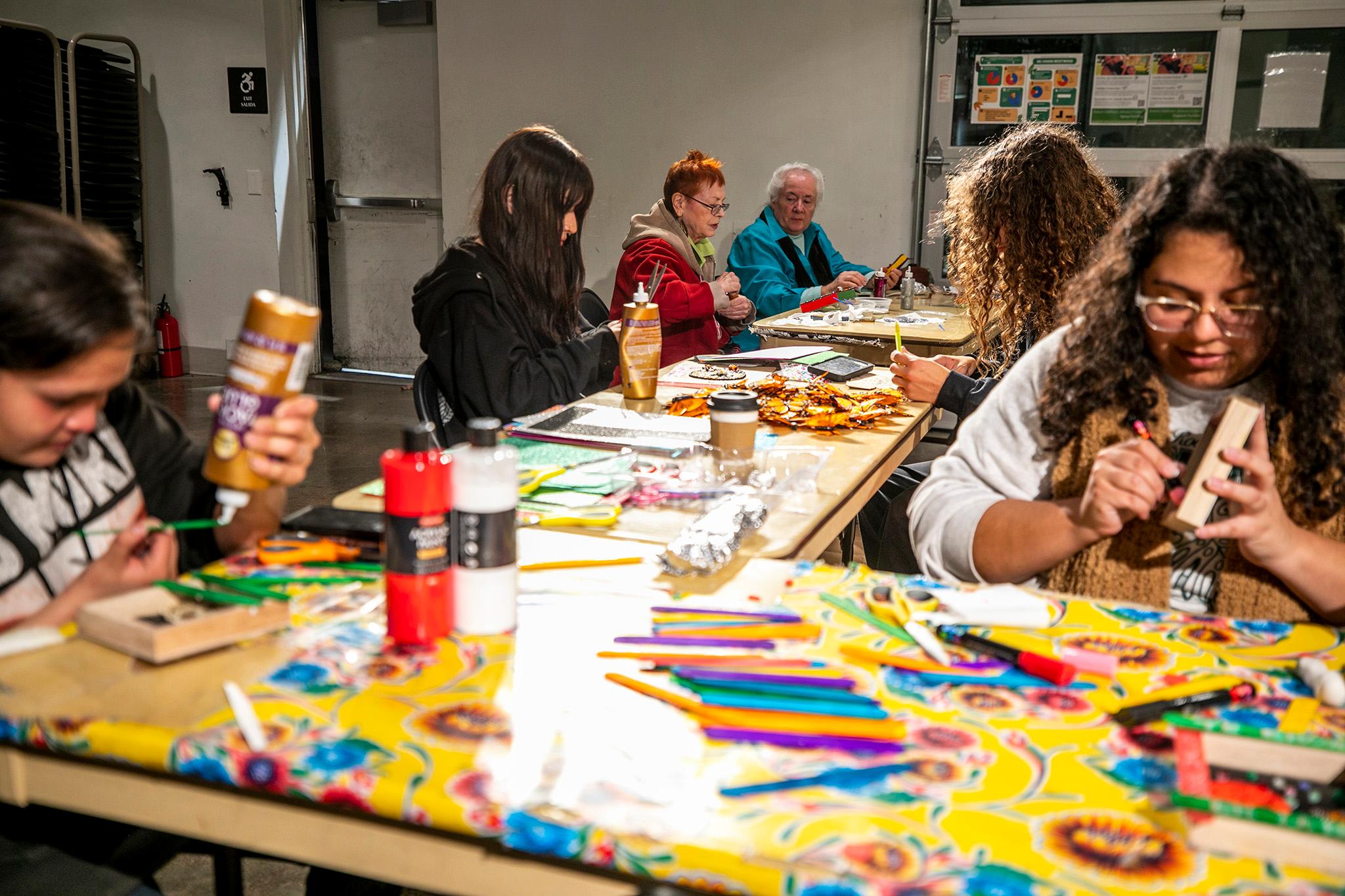
One of the key elements of Día de los Muertos is creating ofrendas that honor those who have died, with photos, marigolds and small offerings, such as food, drinks and candies.
Bringing the community together to build their own nichos as well as contribute to the grander altar was a way to strengthen connections in the neighborhood, Ronkanen said.
Besides the altar making classes, Ronkanen said community leaders have been immersing neighbors even further into the holiday with cooking classes from Re:Vision's promotoras, which centers on ancestral recipes and traditions. Ronkanen said community leaders in Westwood have been working on putting together a cookbook highlighting culinary traditions in the neighborhood.
"Each week a different promotora is sharing a recipe from a lost loved one and teaching the community how to make that," Ronkanen said. "We're putting together a commemorative book called 'Sabores y Recuerdos.'"
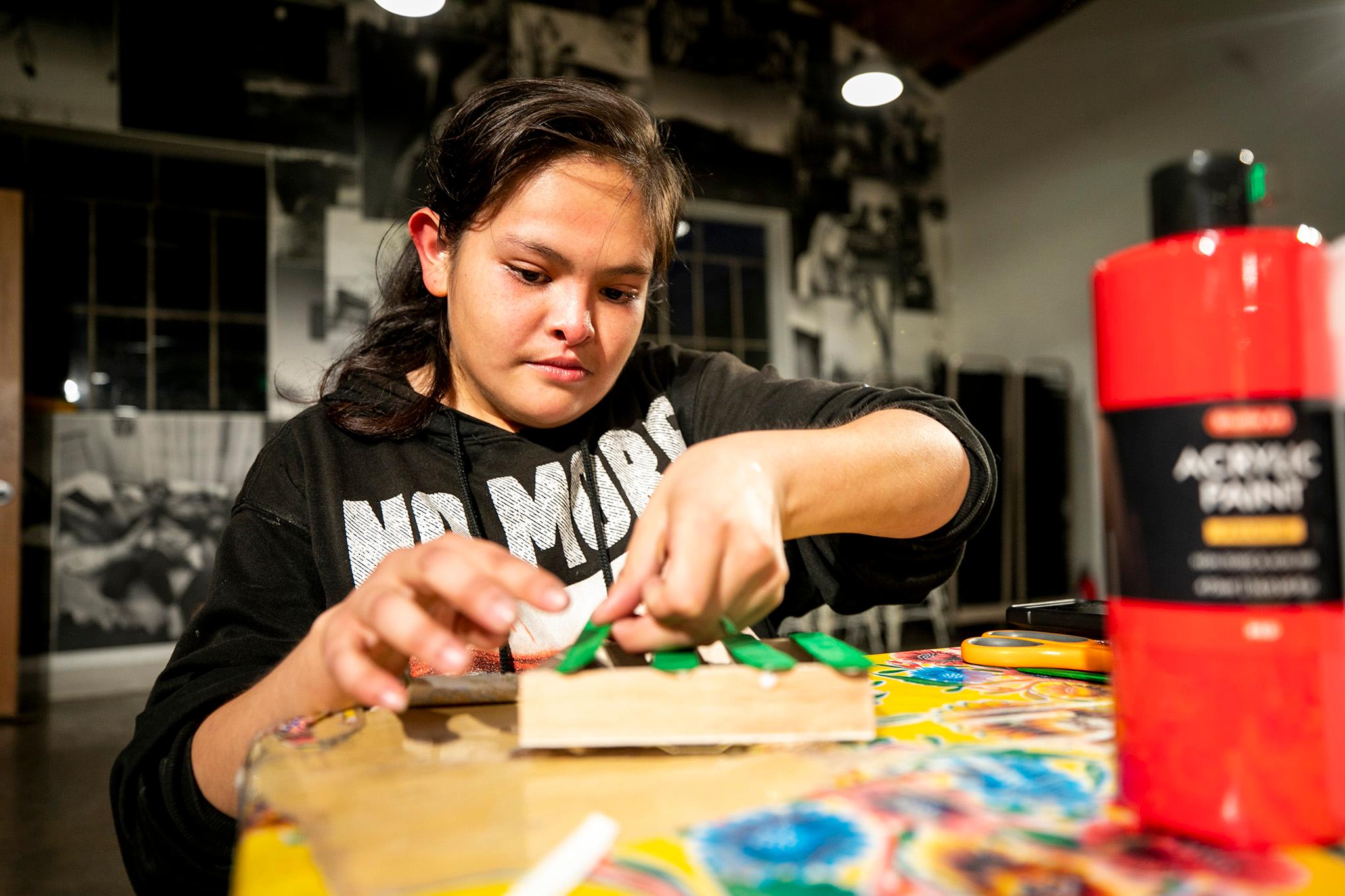
Some other communal aspects to the festival will be the artwork displays from the six local artists Julio Mendoza, Ana Marina, Isaac Lucero, Aalycia Rodriguez, Julio Garcia and Metzli Aragón. They've all worked with community members in Westwood in some way and they've created Día de los Muertos pieces that will be shown all weekend.
To show love to the local businesses during the festival, attendees can pick up the Hecho en Westwood Pasaporte. The passbook will be honored by businesses along Morrison, offering discounts and rewards; Book holders will also be eligible for a prize. Ronkanen said the passbook will be valid for the rest of the year.
While the weekend will be about having a good time and being in community, Ronkanen said ultimately the goal is to celebrate our deceased loved ones. There's the traditional route on day one to the more modern route on day three. However you chose to celebrate, Ronkanen said, just do so intentionally.
"People have certain ways of remembering or honoring their lost loved ones no matter what culture you come from," Ronkanen said. "The original intention behind [Muertos] is honoring and remembering your lost loved ones and celebrating their lives. I would just ask that people kind of go back to that intention and really think about the people they've lost in their lives and how they would want to be remembered and honored and reflect on that and try to do that in the way that would be meaningful to them."

